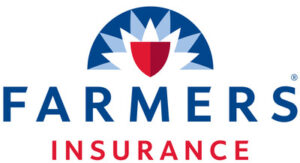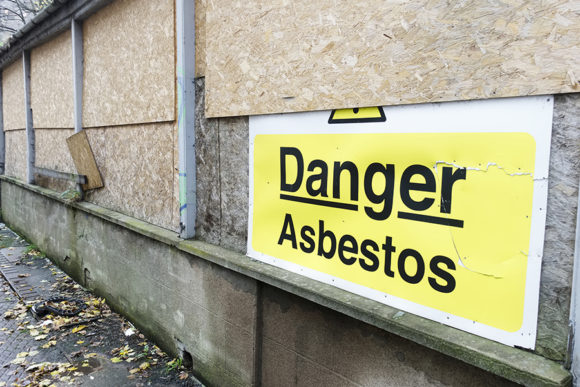A liability insurer has no standing to object to its insured’s bankruptcy plan, even if the carrier feels that the plan unfairly exposes it to potentially fraudulent claims, a federal appeals court decided this week in an asbestos case that has been building since the 1960s.
A panel of the U.S. 4th Circuit Court of Appeals upheld a North Carolina district court and a bankruptcy court and found that Truck Insurance Exchange was not harmed by the bankruptcy plan, despite an alleged dual standard in vetting long-tail asbestos claims.
“If a plan is insurance neutral, the objecting insurer ordinarily is not a party in interest … and thus lacks standing to challenge the substance of the Plan,” Judge Steven Agee wrote in the opinion. No dissent was issued.
It appears to be the first time an insurer had argued that a policy’s cooperation requirements, mandating that an insured cooperate in examining claims, should go so far as to include the policyholder’s conduct in proposing a reorganization plan, the court noted.
Truck’s insureds are Kaiser Gypsum Co. and its sister company, Hanson Permanente Cement Inc., both of which manufactured asbestos-containing products for decades. The parent company is Lehigh Hanson Inc., now part of Texas-based Heidelberg Materials.
Truck Insurance wrote general liability coverage for the companies from the 1960s to the 1980s. By the 1980s, the claims were piling up. Since 1978, the sister companies have been named in more than 38,000 asbestos-related lawsuits around the country, the court explained.
And despite having insurance, with no aggregate limit and a per-claim limit of $500,000, the manufacturers in 2016 decided to seek Chapter 11 bankruptcy protection. At that time, some 14,000 lawsuits were still pending.

Part of the reorganization plan was to set up a trust, seeded with $49 million from Lehigh Hanson. For claims covered by the liability insurance, the trust would pay the companies’ deductible on claims and Truckers Insurance would pay the rest of the claim.
For uninsured, latent claims that fell outside the insurance policies, claimants would submit their demands directly to the trust for resolution through an administrative process. As part of that process, claimants would have to make financial disclosures, authorize the trust to make certain examinations, and would reveal if they had made claims to other asbestos trusts established in the United States.
That would help ensure that only legitimate, non-duplicative claims were paid.
All of the claimants and all parties involved in the bankruptcy approved the plan – except Truck. The insurer, now part of Farmers Insurance, argued that the bankruptcy plan did not provide similar vetting authorizations for insured claims, which could mean that Truck would be subject to numerous fraudulent asbestos claims, causing it to lose millions of dollars.
Fraud in asbestos and silicosis lung-disease claims has been a real concern through the years, according to the Insurance Information Institute. In a famous 2005 case in Mississippi, for example, a federal judge threw out some 10,000 diagnoses, opining that the diagnoses were “manufactured” and inadmissible.
In the Kaiser Gypsum bankruptcy, though, the debtors were not persuaded and declined to disturb the agreed-on plan. Truck asked the courts to intervene.
The bankruptcy court found that the bankruptcy plan was “insurance neutral” because it did not alter Truck’s rights or obligations under its policies. Thus, Truck was not a party to proceedings. To require more anti-fraud vetting of insured claims in litigation “would improperly invade the province of other federal and state courts” by mandating the type of discovery required in asbestos cases, the bankruptcy court concluded.
Truck had some voice as an unsecured creditor, yes, but the court pointed out that all unsecured claims would be satisfied, including the manufacturers’ unpaid deductibles on some asbestos claims.
On appeal, the federal District Court for the Western District of North Carolina agreed with the bankruptcy judge. The District Court judge and the Circuit Court of Appeals judges also noted that Truck’s own information acknowledged that the debtors were required to secure the disclosures from claimants in the insured claims, which would help combat potential fraud in litigating the cases.
Truck’s insurance policies also obligated the carrier to “investigate and defend any claim or suit against the [Debtors] . . . even if such claim or suit is groundless, false or fraudulent,” the appeals judges said.
In sum, the court said, Truck failed to show that the plan “impairs its contractual rights or otherwise expands its potential liability under the subject insurance policies, so it is not a party in interest …”
Was this article valuable?
Here are more articles you may enjoy.



 BMW Recalls Hundreds of Thousands of Cars Over Fire Risk
BMW Recalls Hundreds of Thousands of Cars Over Fire Risk  The $3 Trillion AI Data Center Build-Out Becomes All-Consuming for Debt Markets
The $3 Trillion AI Data Center Build-Out Becomes All-Consuming for Debt Markets  Insurify Starts App With ChatGPT to Allow Consumers to Shop for Insurance
Insurify Starts App With ChatGPT to Allow Consumers to Shop for Insurance  AIG Underwriting Income Up 48% in Q4 on North America Commercial
AIG Underwriting Income Up 48% in Q4 on North America Commercial 


